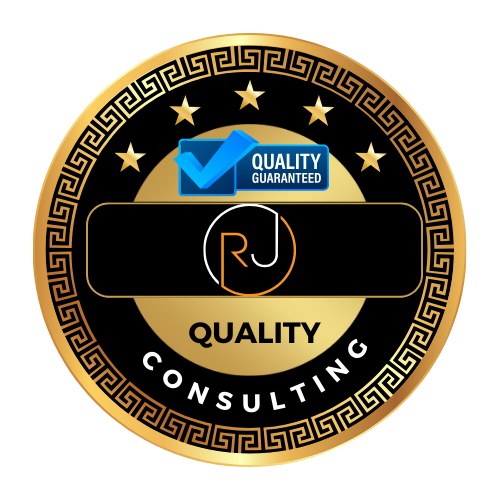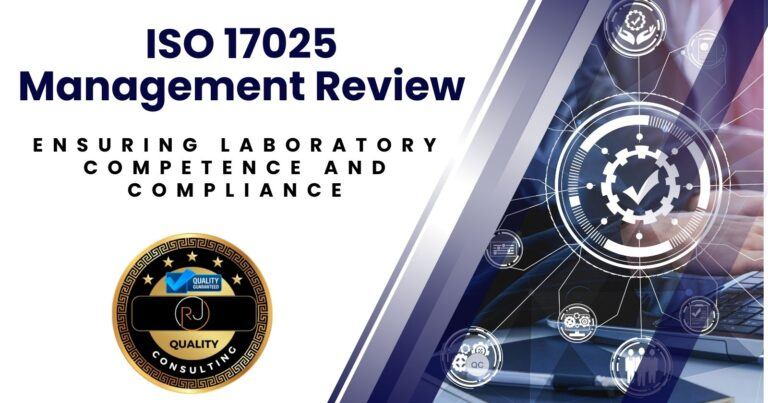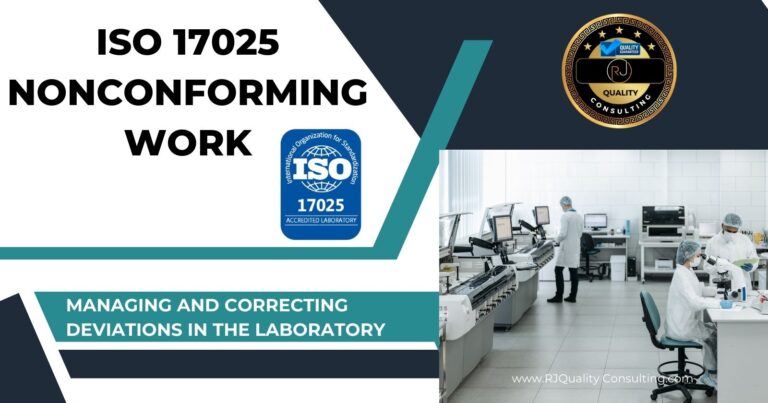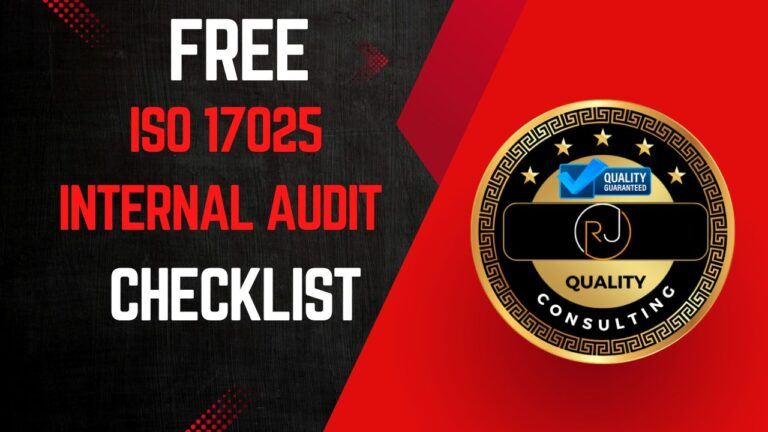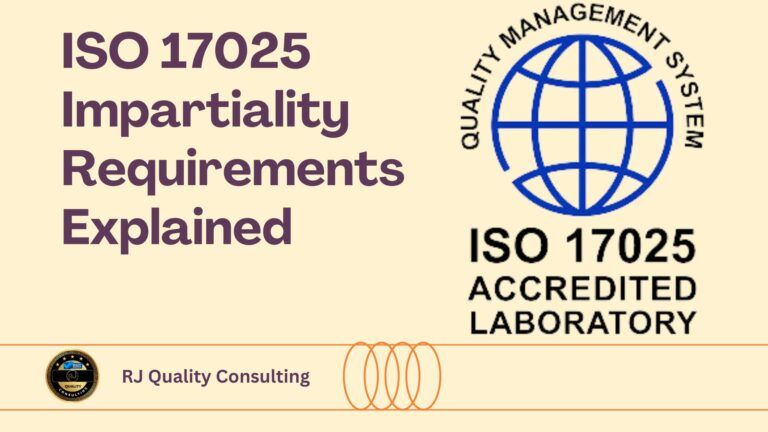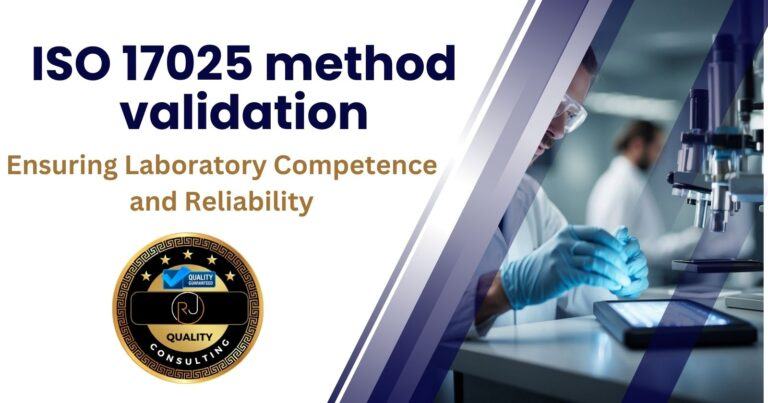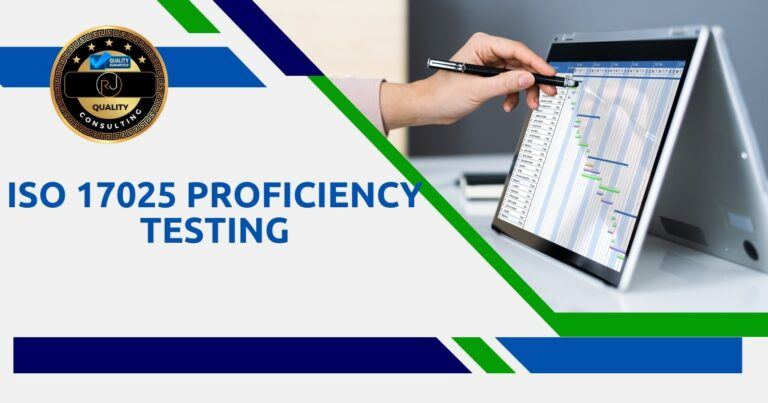What Is ISO 17025 Accreditation? Understanding Laboratory Competency And Standardization
What is ISO 17025 accreditation? It is a prestigious accreditation that signifies a lab’s capability to produce precise & reliable test & calibration results. Issued by authoritative accreditation bodies, this international standard verifies that a lab operates competently and generates valid results, thereby fostering confidence among clients, regulatory authorities, and trade organizations.

Laboratories seek ISO/IEC 17025 accreditation to demonstrate they have a quality management system in place and can perform specific tests. It is not only a marker of reliability but also necessary in many cases for a lab to be acknowledged in its technical capacity by industry and government entities. The accreditation involves a thorough evaluation against the standards’ technical and managerial criteria, ensuring the consistency of lab operations and competency of staff.
Key Takeaways
- ISO 17025 is an accreditation that signifies a laboratory’s reliability and competency.
- Accreditation requires compliance with both technical and managerial standards.
- The standard enhances lab recognition and acceptance of test results globally.
What is ISO/IEC 17025?
ISO/IEC 17025 is a globally recognized standard that benchmarks the quality and technical competence of testing and calibration laboratories.
Book a FREE 45-Minute Consultation
During the Consultation We Will Give You a Clear Direction and Path For You to Move Forward with Your Certification or Accreditation Goals
Overview of ISO 17025 Accreditation
ISO/IEC 17025 accreditation ensures that laboratories have met rigorous quality management and technical requirements. Accreditation demonstrates a lab’s ability to produce precise and accurate test and calibration data. This includes, but is not limited to:
- Personnel Competence: Ensuring staff are qualified and continuously trained.
- Test Validity: Confirmation of the appropriateness and application of specific tests.
- Quality Assurance: Implementation of a quality management system that fosters continuous improvement.
- Equipment Calibration: Regular calibration and maintenance of equipment to ensure accuracy.
- The laboratories understanding of quality assurance versus quality control.
Significance in The Global Context
The adherence to ISO/IEC 17025 is essential for laboratories to gain international recognition for their testing and calibration results, enabling cross-border acknowledgment. This standard is significant for:
- Inter-laboratory consistency: It promotes international trust and the comparability of measurement results.
- Regulatory acceptance: Many industries and regulators mandate ISO/IEC 17025 accreditation for compliance.
- Confidence in results: Stakeholders rely on it to ensure the reliability and precision of laboratory output.
The 5 Key Requirements of ISO 17025

ISO 17025 accreditation is a rigorous process that validates a laboratory’s technical competence and commitment to quality. Understanding its core requirements is essential to achieve and maintain accreditation.
In-Depth Look at The Five Core Requirements of The Standard
1. Scope of Competence:
Your laboratory must precisely define its scope of activities. This includes detailing the specific tests and calibrations it can perform competently, as well as the limits of detection and the types of equipment used.
2. Technical Proficiency:
You must prove technical proficiency and scientific rigor in your operations. This involves having qualified staff, reliable testing methodologies, and proper equipment that are necessary for producing valid results.
3. Management System:
Your lab must implement a robust management system consistent with the principles of ISO 9001. This system should cover all aspects of laboratory operations, ensuring consistent, reliable results and continuous improvement.
4. Impartiality and Confidentiality:
You must maintain impartiality in all testing and calibration activities and ensure the confidentiality of customer data. This promotes trust and integrity in your laboratory’s services.
5. Consistent Application:
Lastly, your laboratory must demonstrate consistent application of its management system and adherence to the standard during internal audits and external assessments. This ensures ongoing compliance with ISO 17025.
ISO 17025 Equivalence

ISO 17025 accreditation is internationally recognized, and while it has its unique aspects, it aligns with other standards you may be familiar with. This ensures consistency and quality across testing and calibration laboratories worldwide.
Comparison with Other Similar Standards
ISO 17025 is often compared to ISO 9001, a standard for quality management systems. The key difference is that ISO 17025 is more specific to calibration and testing laboratories, focusing on competence and reliable results. ISO 17025 encompasses some of the quality management system principles of ISO 9001 but is specialized for the technical and operational requirements of labs.
- ISO 9001: Emphasizes Quality Management Systems
- ISO 17025: Focuses on Competence of Testing and Calibration Laboratories
What is ISO 17025 Equivalent To?
While there is no direct “equivalence” to ISO 17025, it is the main standard for laboratory competence. National metrology institutes such as NIST in the United States endorse laboratories compliant with ISO 17025. Equivalence in this context refers to mutual recognition agreements or arrangements (MRAs) internationally, where labs accredited to ISO 17025 are recognized by other countries, streamlining cooperation and trade.
- National Endorsements: Laboratories meeting ISO 17025 are often recognized by national standards bodies.
- International Recognition: ISO 17025-compliant labs benefit from MRAs, facilitating cross-border acceptance of test results.
The Accreditation Process

The ISO 17025 accreditation process is a thorough assessment to ensure that testing and calibration laboratories are competent and able to produce valid results.
Steps to Obtain ISO 17025 Certification
To obtain ISO 17025 certification, you will need to follow these specific steps:
- Conduct a Gap Analysis: Assess your current processes and identify what needs to change to meet ISO 17025 standards.
- Develop Policies and Procedures: Establish a quality management system (QMS) that adheres to the ISO 17025 requirements.
- Implement Changes: Put into action the necessary policies and processes.
- Training: Ensure that all staff members are trained on the new QMS and are fully competent.
- Internal Audit: Perform an internal audit to verify that the QMS is effectively implemented and maintained.
- Corrective Actions: Address any issues found during the internal audit.
- Apply for Accreditation: Submit an application to an accreditation body.
- External Assessment: An auditor from the accreditation body will conduct a thorough review of your QMS and operational practices.
- Address Findings: Respond to any findings from the external assessment and implement corrective measures if needed.
- Receive Accreditation: Once all criteria are met, you will be awarded the ISO 17025 accreditation.
How to Get ISO 17025 Certified
To get ISO 17025 certified, it’s imperative that you:
- Prepare Documentation: Compile all documents required that demonstrate conformity to the standard.
- Implement Quality Controls: These must be based on the specific procedures and methodologies within your laboratory operations.
- Maintain Records: Keep accurate records of all activities, changes, and reviews of your QMS.
Who Can Certify ISO 17025?
ISO 17025 certification is granted by:
- Accreditation Bodies: These are organizations that are typically recognized by government authorities to assess the competence of testing and calibration labs against the ISO 17025 standard.
- Peer Assessment: In some cases, peer groups within industry-specific accreditation programs can perform the assessment.
Benefits of ISO/IEC 17025 Accreditation

The ISO/IEC 17025 accreditation offers substantial advantages for laboratories, enhancing their operations and the trust in their testing and calibration results. Here are specific benefits that you, as a laboratory, would gain:
Establishing a Global Benchmark for Laboratory Quality
The ISO/IEC 17025 accreditation is an internationally recognized standard that signals your laboratory’s adherence to the highest quality processes. By achieving this accreditation, your laboratory demonstrates that it operates competently and is able to generate valid results, thereby establishing itself against a global benchmark.
Enhancing Confidence in Test Results
With ISO/IEC 17025 accreditation, the reliability of your testing and calibration data is heightened. Stakeholders and customers can have enhanced confidence in your test results, as the accreditation validates the accuracy and repeatability of your procedures and ensuring that the lab deals with nonconforming work. It ensures that the methods and results are well-founded and credible.
Facilitating Cooperation and Reducing the Need for Retesting
Accreditation under ISO/IEC 17025 simplifies cooperation between laboratories and other bodies by creating a level of recognized technical competence. This reduces the need for retesting due to the trust in your laboratory’s testing and calibration services, facilitating smoother collaboration across borders and sectors.
Read the following article to get a deeper understanding of the benefits of ISO 17025 accreditation.
Global Impact and Cooperation

ISO 17025 accreditation has a profound effect on laboratories around the world, enhancing the acceptance of test results across national borders and improving international trade and cooperation.
Case Studies in Different Sectors
- Healthcare: Laboratories accredited under ISO 17025 in the healthcare sector ensure the reliability of diagnostic tests, which is critical for patient care and disease management.
- Manufacturing: In this sector, ISO 17025 helps in the accurate testing of materials, thereby maintaining quality in the production process and reducing the risk of product recalls.
Role in International Trade and Cooperation
- ISO 17025 accreditation is a key facilitator for international trade, as it builds confidence in the competence of labs and the validity of test results. This trust paves the way for smoother trade relations and regulatory compliance.
- Cooperative Frameworks: An ISO 17025-accredited lab is often more easily involved in international cooperation, as it adheres to universally recognized standards, simplifying the mutual acceptance of test data between countries.
Compliance and Quality Management

ISO 17025 Accreditation represents a commitment to excellence in laboratory operations. Your adherence to the standard ensures reliable test and calibration results, fostering global trust and interoperability.
Strategies for Continuous Compliance
To maintain continuous compliance with ISO 17025, you must establish a robust Quality Management System (QMS) that is both effective and adaptable. Here’s how you can achieve this:
- Develop comprehensive procedures that cover all aspects of your operations, from sample handling to data reporting.
- Implement periodic training for your staff to keep them informed about the latest standards and best practices.
- Conduct internal audits regularly to identify areas for improvement and to ensure ongoing adherence to the established procedures.
Importance of Ongoing Quality Management
Effective quality management under ISO 17025 is critical for your laboratory’s operational integrity. Here’s why it’s so important:
- It ensures consistent performance across all your laboratory activities.
- It provides documented evidence of your commitment to producing valid and reliable results.
- Continuous quality management paves the way for international acceptance of your test results, which is vital for cross-border cooperation.
Conclusion

In this final section, you will solidify your understanding of the importance and implications of ISO/IEC 17025 accreditation.
Summary of Key Points
- ISO/IEC 17025 is an international standard that signifies a laboratory’s technical competence and ensures the accuracy of its testing and calibration results.
- Benefits of being ISO/IEC 17025 accredited include reliability, demonstration of technical competency, and confidence in test outcomes which is crucial for stakeholders.
- The requirements for accreditation include achieving a high level of quality management and continuous improvement, underpinning laboratories’ commitment to upholding standards.
Future Outlook for ISO/IEC 17025
- The landscape of laboratory testing and calibration is dynamic, with technological advancements continuously shaping methodologies. Your adherence to ISO/IEC 17025 keeps you at the forefront of industry standards.
- A growing emphasis on international trade and regulatory requirements will likely increase the demand for ISO/IEC 17025 accreditation among laboratories to ensure cross-border acceptance of test results.
Frequently Asked Questions

ISO 17025 accreditation signifies a laboratory’s competence to perform testing and calibration tasks according to international standards. These frequently asked questions address core aspects of obtaining and understanding ISO 17025 accreditation.
How can a laboratory acquire ISO 17025 certification?
To acquire ISO 17025 certification, your laboratory must undergo a thorough evaluation process by an accreditation body. This involves an assessment of your quality management system and technical competence.
What are the primary requirements a lab must adhere to for ISO 17025 accreditation?
For ISO 17025 accreditation, your lab must adhere to requirements that cover two main areas: management and technical requirements. This includes implementing a robust quality management system and demonstrating technical competence.
Which elements are essential for a laboratory to comply with ISO 17025 standards?
Essential elements for a laboratory to comply with ISO 17025 standards include a well-documented system of procedures, trained and qualified staff, appropriate equipment, and a quality assurance system that ensures consistent, valid results.
What other standards are equivalent to ISO 17025, and how do they compare?
Standards equivalent to ISO 17025 include ISO 15189, which specifically addresses medical laboratories. While both standards share common requirements on quality and competence, ISO 15189 is more prescriptive about specific medical testing and operational methods.
How can one find laboratories that have obtained ISO 17025 accreditation?
To find laboratories with ISO 17025 accreditation, you can search the databases of accreditation bodies recognized by the International Laboratory Accreditation Cooperation (ILAC) or through national accreditation bodies themselves.
What are the major benefits of achieving ISO 17025 accreditation for laboratories?
Achieving ISO 17025 accreditation benefits laboratories by enhancing their reliability. It demonstrates a commitment to delivering high-quality results, improving customer trust, and potentially opening up more opportunities in global markets.
